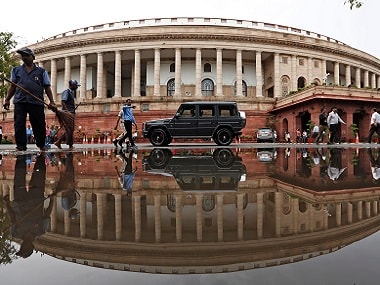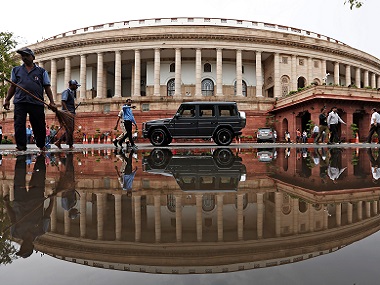On Monday morning, home minister Amit Shah tabled a resolution approved by the President of India that laid down certain changes to Article 367, which deals with the interpretation of certain legal provisions. The general impression was that it would make Article 370 and Article 35A, which provide special status to the state of Jammu and Kashmir, inoperative. Firstpost spoke to J Sai Deepak, a lawyer who practices in the Supreme Court, to understand the ramifications of the presidential order and its impact on Article 370 and Article 35A. Following is the gist of his analysis: “The general impression that is prevailing is that Article 370 has been totally repealed. However, in reality, the order of the president dated 5 August, 2019 effectively does two things. Firstly, it invokes Article 370 (1). Secondly, the provision has been invoked because the presidential order seeks to supersede and replace a previous constitutional order of the president, which dates back to 1954. [caption id=“attachment_7021831” align=“alignleft” width=“380”]  Representational image. Reuters[/caption] Two important constitutional orders had come into being in the 1950s. The first was in the year 1950, which was replaced by the order of 1954. The order of 1954 is important, because it introduced two important amendments to the Constitution. One of these was the introduction of Article 35A. So, Article 35A was not introduced through an amendment to the Constitution but through a presidential order. Further, a proviso was added to Article 368, which stated that in so far as the state of Jammu and Kashmir is concerned, whenever the Constitution is amended by using Article 368, it shall be done so in accordance with Article 370 for Jammu and Kashmir. This was to ensure that Article 368 is not used to circumvent Article 370. Another change that was made was that the erstwhile Maharaja of Jammu and Kashmir was given the status of Sadr-e-Riyasat and his son Karan Singh was subsequently appointed to that position. This reference to Sadr-e-Riyasat was later changed to Governor of Jammu and Kashmir. This was done in 1954 pursuant to an agreement between Jawaharlal Nehru and Sheikh Abdullah. Thus, the provision that was earlier in the explanation to Article 370 was brought to Article 367. In sum and substance, the constitutional order states that provisions of the Constitution, as amended from time to time, will apply to Jammu and Kashmir. Previously, the state saw the Constitution being applied in a piecemeal manner, through presidential orders. Now, the president has ordered that the entirety of the Constitution shall apply to Jammu and Kashmir. This means that the special status for Jammu and Kashmir under the Constitution no longer exists. There is only one exception made to this, and it is with reference to Article 367.
In essence, Article 370 has been used against Article 370 to render Article 370 redundant.
The discussion around Article 370 has been prominently around the use of Clause 3 of the provision by the President. Clause 3 could not be used till now as it has a proviso which says that the President can issue a notification to render Article 370 inoperative only provided he receives such a recommendation from the constituent assembly of the state. The constituent assembly had ceased to exist in September 1956. After that, Clause 3 of Article 370 became inoperable. Now, the reference to “constituent assembly” has been replaced with “Legislative Assembly of the state.” That means that now, the president has the power to use Clause 3 of Article 370, upon the recommendation of the Legislative Assembly, to render it inoperative. Of course, this does not make a difference as now, the entire Constitution applies to Jammu and Kashmir.”


)

)
)
)
)
)
)
)
)



